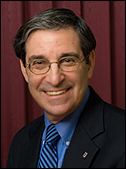From the Editor

Editor, AEE
Senior Associate Dean University of Pittsburgh
shuman@pitt.edu
Over the approximately quarter century that I have been involved with engineering education research, we have witnessed a number of major initiatives and pedagogical changes. These include the integrated curricula first introduced at Rose-Hulman and Drexel by Jeff Froyd and Eli Fromm respectively; the NSF undergraduate engineering education coalitions; a major focus on active in cooperative learning led by Karl Smith among others; an interest in learning styles promoted by Rich Felder and Rebecca Brent; and the development and spread of concept inventories as a means of assessing learning. More recently we have seen an increased focus on project based learning, student centered learning, distance learning, and MOOCs. Now, one of the most rapidly spreading innovations is the flipped, blended, hybrid or inverted classroom, which is the focus of this issue.
Guest edited by Lorena Barba (George Washington University), Autar Kaw (University of South Florida) and Joseph Le Doux (Georgia Tech and Emory University), the issue features eight papers that explore the various aspects of “flipping.” As the guest editors point out: In the flipped classroom, the students come prepared for the in-class session having read texts, watched a video, and completed homework problems.… (click PDF to continue reading).
Table of Contents
- Guest Editorial: Flipped Classrooms in STEM
Lorena A. Barba, Autar Kaw, Joseph M. LeDoux - Effects of In-class Hands-On Laboratories in a Large Enrollment, Multiple Section Blended Linear Circuits Course
Bonnie H. Ferri, Aldo A. Ferri, David M. Majerich, Amanda G. Madden - The Problem Solving Studio: An Apprenticeship Environment for Aspiring Engineers
Joseph M. LeDoux, Alisha A. Waller - Implementing and Assessing a Flipped Classroom Model for First-Year Engineering Design
Ann Saterbak, Tracy Volz, Matthew Wettergreen - Flipping Engineering Courses: A School Wide Initiative
Renee M. Clark, Mary Besterfield-Sacre, Daniel Budny, Karen M. Bursic, William W. Clark, Bryan A. Norman, Robert S. Parker, John F. Patzer II, William S. Slaughter - Comparing the Effectiveness of Blended, Semi-Flipped, and Flipped Formats in an Engineering Numerical Methods Course
Renee M. Clark, Autar Kaw, Mary Besterfield-Sacre - Flippin’ Fluid Mechanics – Comparison Using Two Groups
Donald R. Webster, David M. Majerich, Amanda G. Madden - Evaluation of Hybrid Learning in a Construction Engineering Context: A Mixed-Method Approach
Aliye Karabulut-Ilgu, Charles Jahren - Flipping Core Courses in the Undergraduate Mechanical Engineering Curriculum: Heat Transfer
Michael G. Schrlau, Robert J. Stevens, Sara Schley